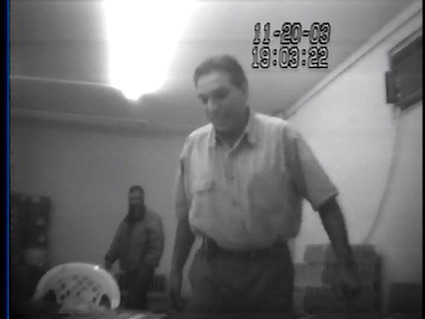
<a href="http://www.flickr.com/photos/kalavinka/4644309240/sizes/m/in/photostream/" target="_blank">Flickr/Kalavinka</a>
It was like a James O’Keefe hidden camera operation gone wrong: In 2006, despite no evidence of wrongdoing, the FBI sent informant Craig Monteilh to spy on a California mosque, only to have Ahmadullah Sais Niazi, the guy Monteilh was trying to convince to launch a fake terrorist operation, report the informant to the authorities. (Naturally, in 2009 the FBI then unsuccessfully tried to prosecute Niazi anyway).
The Monteilh-Niazi incident was part of “Operation Flex,” an FBI counterterrorism program that involved surveillance of the Muslim community in Southern California. Three local Muslims, Sheikh Yassir Fazaga, Ali Uddin Malik, and Yasser AbdelRahim, sued the FBI in February 2011 arguing that the FBI violated their constitutional rights. The Obama administration responded by invoking the state secrets doctrine, which often serves as a sort of get-out-of-court-free card for the government, and asking Judge Cormac J. Carney to dismiss most the case because it would force disclosure of materials that could jeopardize national security. Carney did just that on Wednesday, accepting the government’s argument that the case would endanger state secrets. In doing so, Carney dismissed the plaintiffs’ argument that embracing the state secrets doctrine in the Monteilh case would lead to a state of affairs where “any practice, no matter how abusive, may be immunized from legal challenge by being labeled as ‘counterterrorism’ and ‘state secrets.'”
“Such a claim assumes that courts simply rubber stamp the Executive’s assertion of the state secrets privilege. That is not the case here,” Carney wrote. “The Court has engaged in rigorous judicial scrutiny of the Government’s assertion of privilege and thoroughly reviewed the public and classified filings with a skeptical eye.” Judge Carney nevertheless allowed part of the lawsuit, a claim that FBI officials involved in Operation Flex handlers violated the plaintiff’s rights under the Foreign Intelligence Surveillance Act, to go forward.
The case involves two key elements of the Obama administration’s approach to national security: The use of FBI informants and fake terror plots and the aggressive use of the state secrets doctrine to keep its counterterrorism operations secret. As Trevor Aaronson reported in his award-winning story for the September/October 2011 issue of Mother Jones, “With three exceptions, all of the high-profile domestic terror plots of the last decade were actually FBI stings.”
As for the state secrets doctrine, the Obama administration has used it not only to shield its own counterterrorism operations from scrutiny but also to foil attempts to hold facilitators of the Bush administration’s extraordinary rendition policy legally accountable. That’s despite promises from Attorney General Eric Holder that the state secrets privilege would only be used sparingly. (Prior to the Bush administration, the state secrets doctrine was used to block individual pieces of evidence, not to dismiss entire cases.)
The bottom line is that the FBI can send an informant into your house of worship to spy on you or even try to entice you to commit an act of terrorism. And if you try to sue, the FBI can avoid any legal accountability by saying that the lawsuit could expose information that might jeopardize national security.
Correction: A previous version of this post suggested the entire lawsuit was dismissed, in fact that judge allowed part of the suit to go forward.










